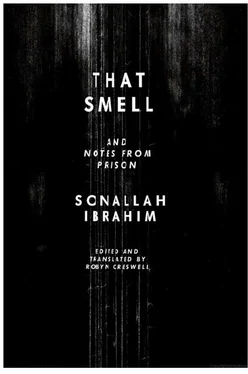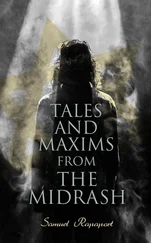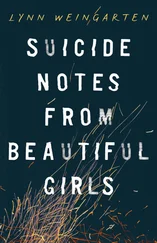Sonallah Ibrahim - That Smell and Notes From Prison
Здесь есть возможность читать онлайн «Sonallah Ibrahim - That Smell and Notes From Prison» весь текст электронной книги совершенно бесплатно (целиком полную версию без сокращений). В некоторых случаях можно слушать аудио, скачать через торрент в формате fb2 и присутствует краткое содержание. Год выпуска: 2013, Издательство: New Directions, Жанр: Современная проза, на английском языке. Описание произведения, (предисловие) а так же отзывы посетителей доступны на портале библиотеки ЛибКат.
- Название:That Smell and Notes From Prison
- Автор:
- Издательство:New Directions
- Жанр:
- Год:2013
- ISBN:нет данных
- Рейтинг книги:4 / 5. Голосов: 1
-
Избранное:Добавить в избранное
- Отзывы:
-
Ваша оценка:
- 80
- 1
- 2
- 3
- 4
- 5
That Smell and Notes From Prison: краткое содержание, описание и аннотация
Предлагаем к чтению аннотацию, описание, краткое содержание или предисловие (зависит от того, что написал сам автор книги «That Smell and Notes From Prison»). Если вы не нашли необходимую информацию о книге — напишите в комментариях, мы постараемся отыскать её.
Notes from Prison
That Smell and Notes From Prison — читать онлайн бесплатно полную книгу (весь текст) целиком
Ниже представлен текст книги, разбитый по страницам. Система сохранения места последней прочитанной страницы, позволяет с удобством читать онлайн бесплатно книгу «That Smell and Notes From Prison», без необходимости каждый раз заново искать на чём Вы остановились. Поставьте закладку, и сможете в любой момент перейти на страницу, на которой закончили чтение.
Интервал:
Закладка:
We would go by tram, taking it from the Midan just before it turned into Zaher Street. I loved that peaceful street, lined with trees whose branches interlaced overhead in the center of the street, veiling it from the light. And I loved the sound of the trolley pole clearing its path through the branches of the trees. Still, the tram was very fast and we would lift our faces into the afternoon breeze and my father held his tarboosh to make sure it didn’t fly off. Then the street ended and the tram turned, swaying a little, into the wide open Midan, slowing its speed and finally stopping in front of the mosque. I would gaze into that big garden, which kept sloping away until it finally disappeared from the view of the tram riders. And through the great stone arches of the mosque wall I would see the red and blue robes of children playing in the garden and keep my eyes on them as the tram slipped back into motion, circling the mosque. Then the mosque and its garden would disappear all at once and my father put his hand on my bare knee while the tram turned sharply past narrow al-Khalig Street and I wished that our tram was the Khalig Street tram so that we could ride between the narrow walls with my father’s hand stretched out nearly touching the houses. We would get off at Faggala and my father would take me with his right hand as we crossed the street. We set off down an alley bordered by a high white wall with tree branches swaying over it and the street would grow dark, though the sun was still in the sky, and I understood why when I looked up and saw thick clouds of smoke coming together and then quickly coming apart and my father would say it was the smoke of trains coming from Bab al-Hadid. Then the street ended and the house appeared. My father sat on the bawwab’s bench while I went up the long staircase, passing by the doors with their smells of cooking oil. Afterward, my father and I left along the same alley, walking next to the white wall, and I would spot the big bells behind it. The street was hidden in shadows and empty except for us and at the far end a patch of light turned into a tobacconist’s shop. We stopped at the entrance, blocked by a big high display case. I pressed my face against the cloudy glass and stared at the boxes of sweets and chocolates. I saw my father’s hand dip into his pants pocket. He took out some coins and cast them on top of the glass counter, right at the level of my head, and then we would leave the shop and cross the street to the tram stop. I was cold and pressed myself against my father and he spread out the collar of his jacket to cover his chest and we stood alone on the station platform. The tram came and we got on the covered back car and huddled in the corner with my father’s warm hand on my bare knee and the tram would begin the journey back, passing by Khalig Street, then turning abruptly to the right, the houses on our left disappearing and a dark wide open space rolling out in front of us. I was afraid that I would fall in and held onto my father tightly. Then my eyes got used to the dark and I made out the big Midan with the large form of the mosque in the middle and the tram would circle the mosque, passing a shuttered cinema that we went to in the summer with my mother, and then drive down tree-lined Zaher Street while I leaned my head against the wooden guardrail behind me and enjoyed the rushing speed, watching my father close his eyes against the strong wind in our faces.
I took the tram to the church and turned into the neighboring street that was crowded and full of noise. The street ended, I turned to the right. The house I remembered was very high with wide wooden balconies. My mother jumped from one of those balconies, landing on the one below. I looked from house to house. They were all low and only one of them had wooden balconies. That must be the one, I thought. I walked slowly toward it. The balconies were small and the lobby was cramped. The lobby I remembered was spacious. I went through the lobby and slowly climbed the stairs, coming to the top sooner than I expected. There was a small room there and I knocked on the door. Come in, I heard a female voice say. I pushed open the door and stood in the entrance. There were three women draped in black sitting cross-legged on a bed in the corner. One rose and came to me, saying, Who are you? I recognized my grandmother. I spoke my name in a low voice and she embraced me and kissed me on the cheek. Sit down, she said. I sat on a wooden chair by the door. My grandmother pointed to the younger of the two women. This is your aunt, she said. My aunt rose and kissed me on the cheek. Then she pointed to the other woman. This is my aunt, she said. I rose and picked up my chair and brought it closer to them, setting it down next to the bed. My grandmother’s aunt said, This neighborhood is falling apart. My grandmother said, As soon as I saw you, I knew it was you. My aunt said, We were just saying we could meet the two of them on a bus and have no idea. My grandmother picked up the transistor and said, It’s story-time. A somber voice on the radio announced another episode of “The Shadow.” The episode began with a young man’s voice saying tearfully: How can I live when I know my father is a murderer? I sat and listened in silence. All the women gazed at the radio. Fifteen minutes passed, the episode ended, and my grandmother got up to pray. Some children came into the room and my aunt said to them, This is the son of your aunt, may God have mercy on her. She looked at me from the corner of her eye. I said nothing. I wanted to know exactly when and where my mother had died. My grandmother finished her prayers and sat next to me. When exactly did my mother die? I asked her. One week ago tomorrow, she said. Where? At her father’s house, she said. I pointed to my head and said, How was she? She read the newspapers and went on about everything better than any of us and she knew what was going to happen and it didn’t bother her, my grandmother’s aunt said. Then she got sick all of a sudden and wouldn’t see the doctor, my grandmother said. She wouldn’t take any medicine. She got thinner and thinner and finally stopped eating. My aunt said, On the last day she asked for a cup of water and when she drank it she fell down dead. We were silent. My grandmother said, Even at the end, she didn’t want to see me and she didn’t want to see any of you. I looked at my watch. The policeman would come soon. I stood up and said, I have to go now. I wished them goodbye. I went downstairs and walked out of the house, then followed some side streets back to Midan Ramses, where I headed for the metro station.
INTRODUCTION TO THE 1986 EDITION OF THAT SMELL
The great Yahya Haqqi asked me, when I met him recently at some function or other, whether I remembered his criticism of my first novel, That Smell , just after its publication in 1966. When I said yes, he asked my opinion now, almost two decades later, of what he’d said and of my novel more generally. I’d forgotten almost everything to do with the book. Years had passed since the last time I’d read it. I’m not in the habit of going back to previous work — reading like that bores me when it doesn’t lead to depression. As for Yahya Haqqi’s criticism, I will never forget it.
I’d given the manuscript to a shabby little printer in El Zaher district, during one of those rare moments in the history of modern Egypt when martial law was lifted and a book didn’t require prior approval from the censor before being given to a printer. Officially, at least. In fact, the censor kept his office and his job as before. The only difference was that his door no longer had a sign on it, and the confiscation of books didn’t happen before the printing, but afterward.
Which is what happened to my novel. The printer had hardly finished before the book was seized. I don’t remember if I was summoned to the chief censor’s office or if I went there on my own to complain. In any case, I met the late Talat Khalid — one of the more zealous disciples of the Minister of Information, Abdel Qader Hatem — who had called in some departmental bigwigs to enjoy the spectacle. Khalid had a copy of the confiscated novel in front of him, with the margins of most pages marked in red. He asked me, contemptuously, “Why does the hero refuse to sleep with the prostitute his friend brings him? Is the hero impotent?”
Читать дальшеИнтервал:
Закладка:
Похожие книги на «That Smell and Notes From Prison»
Представляем Вашему вниманию похожие книги на «That Smell and Notes From Prison» списком для выбора. Мы отобрали схожую по названию и смыслу литературу в надежде предоставить читателям больше вариантов отыскать новые, интересные, ещё непрочитанные произведения.
Обсуждение, отзывы о книге «That Smell and Notes From Prison» и просто собственные мнения читателей. Оставьте ваши комментарии, напишите, что Вы думаете о произведении, его смысле или главных героях. Укажите что конкретно понравилось, а что нет, и почему Вы так считаете.












